The Institute for Global African Affairs (IGAA)/Institute for Pan African Thought and Conversation (IPATC) attendance at the T20 Brazil Midterm Conference
Publisher: The Institute for Pan-African Thought and Conversation (IPATC)
Author: Dr. Siphumelele Duma, Senior Post Doctoral Fellow, Institute for Pan-African Thought and Conversation
Title: The Institute for Global African Affairs (IGAA)/Institute for Pan African Thought and Conversation (IPATC) attendance at the T20 Brazil Midterm Conference
Conference Report: Click here to Download
Introduction
The Institute for Global African Affairs (IGAA)/Institute for Pan-African Thought and Conversation had a three-member delegation at the T201 Brazil Midterm Conference between the 1st and 3rd July 2024. The first day was a closed session, and the IGAA/IPATC delegation was part of the Conference on the 2nd and 3rd day. We had the opportunity to listen to the recommendations of the six task forces to G20 member states based on the work done over the past six months. The six task forces are 1-Fighting inequalities, poverty and hunger; 2- Sustainable climate action and inclusive just energy transition; 3-Reforming the international financial architecture; 4-Trade and investment for sustainable and inclusive growth; 5-Inclusive digital transformation; and 6-Strengthening multilateralism and global governance.
The T20 Brazil Midterm Conference
While we keenly took part in all the discussions of the task forces, as they are all of immense importance, we have taken a great interest in reforming the global financial architecture (Task Force 3). This keen interest in the reform of global financial architecture stems from the fact that there is an overwhelming consensus across the global south that an urgent change is required in global economic governance if there is to be an inclusive and just development (finance). It is agreed that the successive global south presidencies of the G20 present an opportune moment for advancing this agenda.
Concerns about climate change were among the transversal issues that were addressed at different times during the Conference. The energy transition is no longer a matter for the near future, highlighting the need to consider it now. Addressing local and global issues calls for the involvement of non-governmental organisations and sub-national entities, which is another topic covered during the Conference. Furthermore, it was suggested that a special Task Force be established to address inequality, as treating unequal individuals equally does not address the underlying cause of the issue. Considering that President Lula had suggested a Task Force to address this issue at the G20 Meeting the previous year, the Global Alliance Against Hunger and Poverty was a further significant aspect of the Conference. The formalisation of the Alliance’s founding documents has been confirmed this month, and membership will open at the end of July.
On the last day, the T20 conference adopted a communique with the recommendations from the six task forces, and it was delivered to the G20 Brasil Sherpa and Finance Track leaders. This is the first it was delivered in advance; it was noted that the rationale behind this move is to influence the negotiations and the drafting of the joint declaration at the G20 leader’s summit in November. Furthermore, following the discussions on issues of common interest, the T20 and the C20, the engagement groups issued a joint declaration signed by more than 35 institutions. By Creating a declaration, the engagement groups seek to reinforce common ground.
Meeting with partners: BRICS Policy Center
The IGAA/IPATC delegation met with the BRICS Policy Center delegation to discuss a potential collaboration. Several issues of common interest arose, and the parties agreed to convene two dialogues. The first part of the dialogue will be ahead of the G20 summit, with a methodological approach, looking at how the recommendations that the T20 is currently working on were arrived at (this could be broken into 2-4 dialogues). The second part of the dialogue relates to the South African G20 Presidency, with a specific focus on the implementation and accountability issues of the adopted recommendations, especially in the area of the reform of the global financial architecture.
Conclusion
During the Conference, it was noteworthy to acknowledge the apprehension surrounding the G20’s actual contributions to current global issues, which necessitate the involvement of different civil society sectors and political will from states. In addition to observing which agendas the heads of state will prioritise, it will be important to follow how countries analyse and adopt the recommendations formulated by T20 and other social forums in November.
The question of whether there will be any similarities between the presidencies of South Africa and Brazil — and, if so, in what domains and themes — will also be explored in collaboration with the BRICS Policy Center. It is important to stress that the issues frontloaded by the current Brazilian presidency constitute a challenge to countries across the global south. For instance, South Africa is often cited as one of the most unequal societies in the world, with a very high unemployment rate among young people. Thus, it would not be surprising to see South Africa continuing with several agenda items from the Brazil G20 presidency.

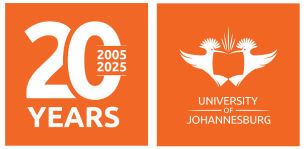







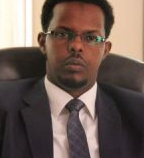
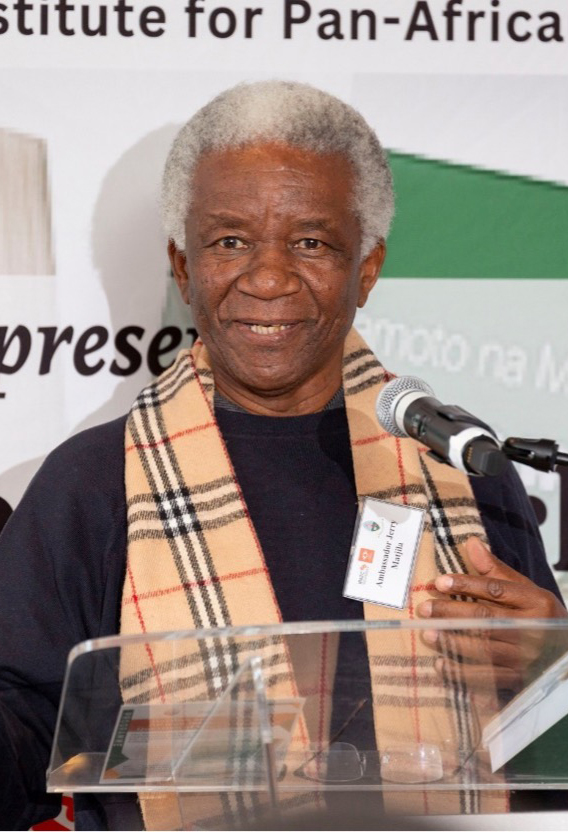


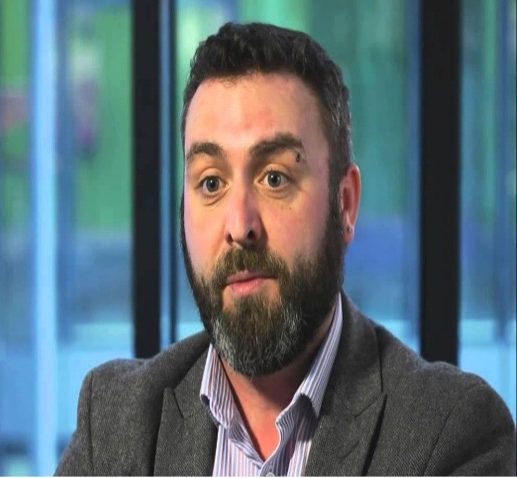



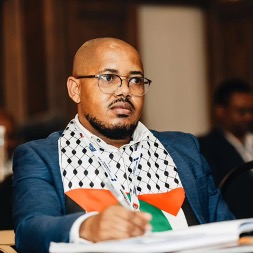



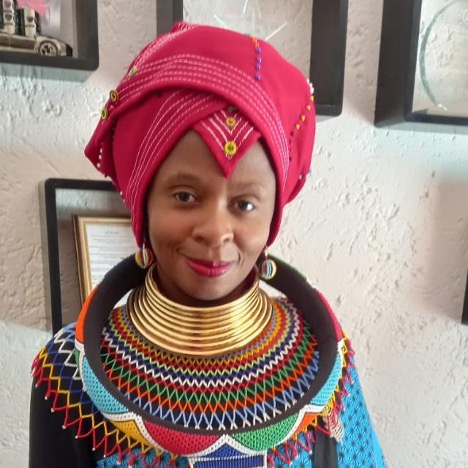





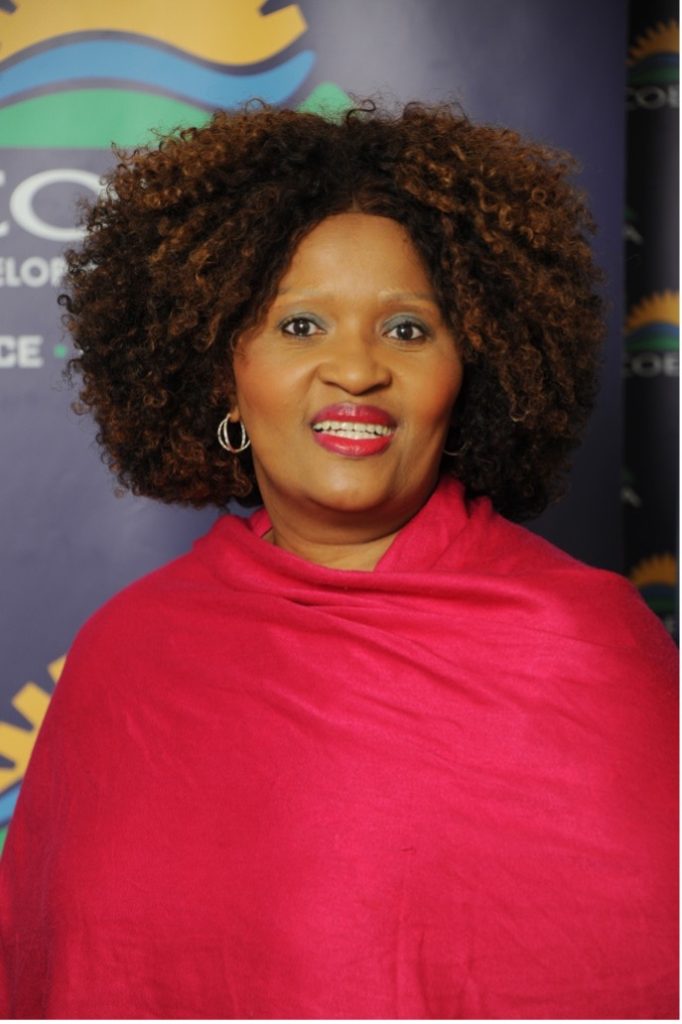































 Ms Zoliswa Ntsoko (South Africa) is the Institute’s Administrative Assistant who assists with general administration and research. She is a seasoned professional with a background in Disaster Management. She holds an Advanced Diploma in Management from Milpark Business School, and a Post Graduate Diploma in Public Management from Regenesys Business School. She also holds certificates in Project Management, and in Disaster Management. Previously, she has worked as a Disaster Management Specialist at the City of Johannesburg – Disaster Management Centre.
Ms Zoliswa Ntsoko (South Africa) is the Institute’s Administrative Assistant who assists with general administration and research. She is a seasoned professional with a background in Disaster Management. She holds an Advanced Diploma in Management from Milpark Business School, and a Post Graduate Diploma in Public Management from Regenesys Business School. She also holds certificates in Project Management, and in Disaster Management. Previously, she has worked as a Disaster Management Specialist at the City of Johannesburg – Disaster Management Centre. Ms Cecilia Lwiindi Nedziwe-Moyo is the Research Coordinator at the Institute for Pan-African Thought and Conversation. She previously served as a Regional Coordinator at the Centre for Peace Initiatives in Africa (CPIA) in Zimbabwe between 2007 and 2013. She completed her master’s degree in International Studies, Peace, and Conflict Resolution at the University of Queensland in Australia as a Rotary Peace Scholar. She has just completed her doctoral studies at Rhodes University. Her areas of interest include: gender, foreign policy, regional organisations and conflict resolution.
Ms Cecilia Lwiindi Nedziwe-Moyo is the Research Coordinator at the Institute for Pan-African Thought and Conversation. She previously served as a Regional Coordinator at the Centre for Peace Initiatives in Africa (CPIA) in Zimbabwe between 2007 and 2013. She completed her master’s degree in International Studies, Peace, and Conflict Resolution at the University of Queensland in Australia as a Rotary Peace Scholar. She has just completed her doctoral studies at Rhodes University. Her areas of interest include: gender, foreign policy, regional organisations and conflict resolution.



 Ms Thembeka Somtseu is a seasoned professional with a background in the textile and construction sectors. She holds a National Diploma in Business Administration from the Durban University of Technology, and studied Development Communication and Media Studies at the University of the Witwatersrand. She worked as a corporate communications specialist for more than ten years, serving in both local and multinational companies.
Ms Thembeka Somtseu is a seasoned professional with a background in the textile and construction sectors. She holds a National Diploma in Business Administration from the Durban University of Technology, and studied Development Communication and Media Studies at the University of the Witwatersrand. She worked as a corporate communications specialist for more than ten years, serving in both local and multinational companies.